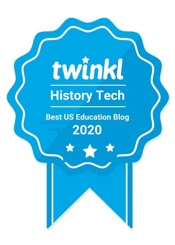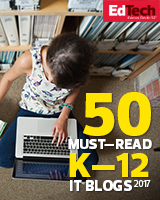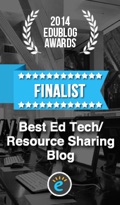Library of Congress online conference archives

Last fall, the Library of Congress hosted its first online conference. Education experts and subject matter specialists presented 15 different sessions discussing resources and teaching strategies for using primary sources in the classroom.
And it was awesome. But I have to admit . . . I didn’t actually attend the thing. I didn’t have time during the actual day to sit through the different webinars. So I missed it.
But it was still awesome.
Because the LOC posted all of the webinars online. Meaning I could pick and choose, listening to the presentations when I had time. And I’ve slowly worked my way through them. The cool thing is that you as well. If you missed the conference or perhaps hadn’t even heard about the goodness that was the first ever LOC online conference, it’s not too late.
To access recordings from the Library of Congress first online conference, simply head over to their site. Or simply click on any of the links below:
Keynote: Preserving Our Communities with Photography
Listen to renowned photographer Carol Highsmith speak with in a conversation with Chief of the Library’s Prints and Photographs Division, Helena Zinkham. Explore the reaches of Highsmith’s archive as she discusses her work and her motivation for dedicating the rights to the American people for copyright-free access.
Beyond the Bubble: A New Generation of Historical Thinking Assessments
During this interactive session, participants will learn how to use free online assessments designed by the Stanford History Education Group that incorporate documents from the Library of Congress’s archives. Participants will examine assessments, rubrics, and sample student responses.
Building Literacy Muscle with Primary Sources
Strengthen teaching by incorporating primary sources to build student literacy skills while also engaging them, increasing content knowledge and promoting inquiry. This session shares examples of instructional strategies which use diverse and thoughtfully selected primary sources to develop understanding, academic language and fluency, freeing students to focus on content!
Library of Congress 101 for Teachers
Explore what the Library of Congress has for teachers, including lesson plans and primary source sets, webinars and professional development opportunities, social media channels, and more. Share your top tips and favorite resources, and learn from others.
Making Thinking Visible with Primary Sources
This session will model how to use visible thinking strategies to enhance the power of primary sources in your classroom. A wide variety of easy-to-use routines will be introduced. Two educators will provide examples of how they have used these routines with primary sources to help students learn to think and think to learn.
Provoking Inquiry Through Primary Sources
As educators, we have answered the question: Why inquiry? This session will engage participants in answering the question: Why use primary sources during inquiry? We will investigate ways that primary sources bring inquiry alive in our students: creation of intellectual space, building authentic connections to the real world, integration of inquiry skills, and the development of empathy.
Reading Like a Historian
This interactive session will explore the Stanford History Education Group’s Reading Like a Historian curriculum and the research behind this free online resource. Participants will examine a sample lesson plan and consider how to implement these materials in their classrooms.
Teaching Students to Ask Their Own Questions
When students learn how to ask their own questions, they both practice a foundational research skill, and set a learning agenda and prepare to work more effectively with a range of primary sources. This session offers an experiential introduction to the Question Formulation Technique, a protocol to help students become question-askers, sophisticated thinkers and self-directed learners.
Teaching the Civil Rights Act of 1964
Primary sources can engage students in developing a deeper understanding of the civil rights movement and its historical context. Library of Congress education experts will guide participants in considering audience, context, and point of view when identifying primary sources from the Library’s exhibition, The Civil Rights Act of 1964: A Long Struggle for Freedom, for classroom teaching
Teaching with Historical Newspapers
Join the Library of Congress education and newspaper experts to learn about the digitized historic newspapers available through the Chronicling America program. Explore teaching strategies for using the materials with students.
Veterans History Project
The Veterans History Project (VHP) collects, preserves, and makes accessible the personal accounts of American war veterans so that future generations may hear directly from veterans and better understand the realities of war. Hear from Monica Mohindra from VHP on how your students can become involved in using and collecting stories from veterans in your community.
What’s New at the Library of Congress?
Join Library staff for lightning updates on new and enhanced features: teacher tools, professional development; primary sources; world culture artifacts; current legislation; social media; community connections and partnerships. Share discoveries!
Working with Visuals
A photograph, poster, drawing, or painting always has more than one story to tell. It may document a moment in time, but it also may offer an opinion on that event through the choices of the artist. Information literacy demands observing visual sources, questioning, and comparing the information from multiple sources. Join Library staff for approaches to researching with photographs.
World Digital Library
Imagine giving your students free, unlimited access to treasures from cultural institutions from around the world. They might examine an ancient manuscript for small but important details and then learn more about its significance from an expert, or search for additional items from the same time or place. Join Library experts to learn more about free primary sources from the World Digital Library.
Young Learners Explore Library of Congress Images
This presentation describes research-informed strategies to foster early childhood and primary grade students’ multiple literacies through the developmentally appropriate use of primary sources from the Library of Congress.
Enjoy!















